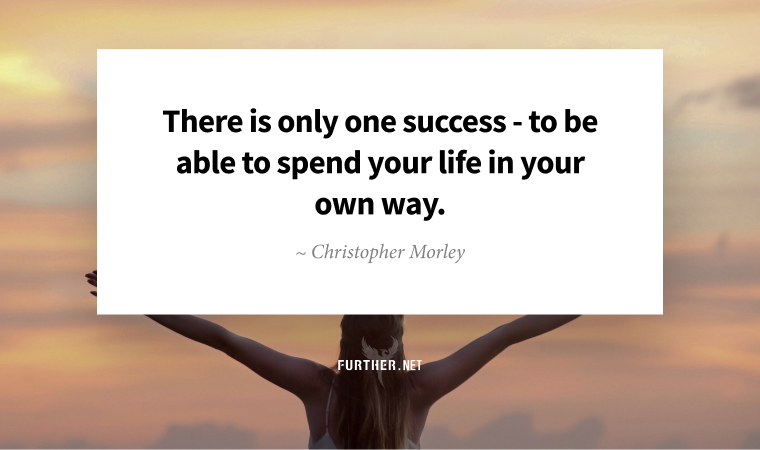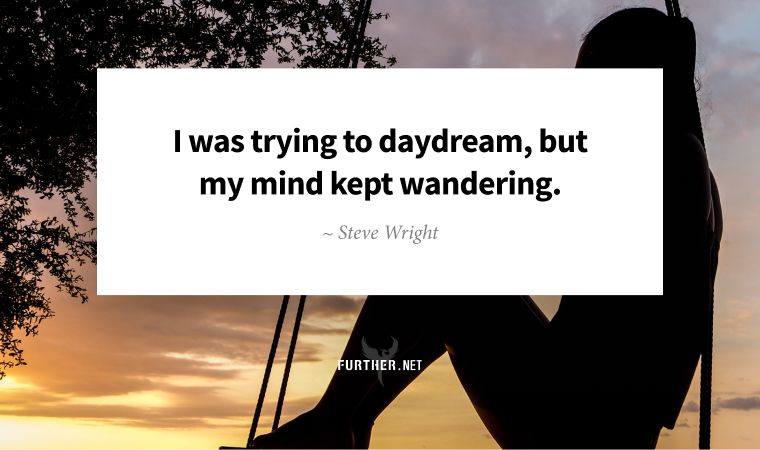
The beginning of my career probably sounds like a dream come true to some. I was an attorney employed by powerful law firms, working on important cases and transactions.
I flew on private jets with clients. Once, I flew alone on the firm’s jet just to file a brief at the Texas Supreme Court in Austin and return. Okay, so the pilots were also there, but you get the idea.
And yet, I couldn’t stand it. Not only did I not enjoy practicing law, I hated working for someone else. Years later, I realized that second part was the real issue.
So I walked away, and figured out how to support myself without a job. Early in the process, I was interviewed by an aspiring author named Dan Pink for his first book, 2001’s Free Agent Nation. At its essence, the book is about other people like me who didn’t enjoy answering to a boss, and how technology and corporate dynamics were prompting us to go it alone.
Dan Pink went on to write bestseller after bestseller over the subsequent 20 years. Fifteen years after he interviewed me, I turned the tables on him as the very first guest on my podcast.
When reflecting back on Free Agent Nation, Dan had this to say about the unifying motivations of the “free agents” he interviewed:
And to my surprise, it turned out to be less of an economic story and more of a psychology story. It was more about people yearning for having a sense of autonomy and being true to themselves and having some freedom and control over their lives.
What Dan is keying on here is intrinsic motivation, and he went on to explore the topic in depth with his 2009 book Drive: The Surprising Truth About What Motivates Us. Pink boils down what motivates us to autonomy, mastery, and purpose … sounds about right to me.
As I progressed deeper into my entrepreneurial journey, I’d created what I thought was a “real” company, and ended up restricting my own autonomy in the process. Not the deal I was looking for, so I walked away from that as well in 2005.
Every time I did something “crazy” by leaving a seemingly lucrative situation, I’ve gone on to exponentially greater levels of financial success and gratification. I can’t accept that this is mere coincidence, given that when I have the proper motivation in place, it’s pretty hard to stop me. But you have to understand that “more money” was never the motivator.
Maybe I’m an outlier when it comes to such a strict need for autonomy. But it may be more accurate to say that I was just early. After all, 60% of all small businesses are started by people between the ages of 40 and 59 — and the most common reason given is “to be their own boss.”
Making a lot of money is nice. And these days, a small digital business can make loads of it. But the reasons to do it are your sense of purpose, your creative mastery, and yes … your autonomy.
Anyway, I took this trip down memory lane thanks to Ryan Holiday’s essay on autonomy being the definition of success. In it, he relates how “successful” people ranging from Marcus Aurelius to Napoleon to Taylor Swift ended up with less freedom and happiness than you would think, because of the trappings of extrinsic forces.
Success is often viewed as achieving more and rising higher in status. But the reality is that your success will be defined by what you say no to, and what you refuse to put up with any longer.
The Definition of Success Is Autonomy
Empty Mind, Full Life
Sure, it gets a little tougher to pick up new skills as we age, just like doing a full squat is an adventure you’re not quite sure you’ll return from. But harnessing a specific type of mindset can help you learn effectively as an adult, and the benefits of doing so are well worth it.
How a ‘Beginners’ Mindset’ Can Help You Learn Anything
The Rite of Passage
Transitions are how we get unstuck. Disruptions may be voluntary (you leave a bad marriage or start a new business) or involuntary (you get left or laid off), but the transition itself must be voluntary. We have to choose to go through the process of turning our fear and anxiety into renewal and growth.
Feeling Stuck? Five Tips for Managing Life Transitions
Home Invasion
Home is where your head is at, and unwelcome guests can really make a mess of things. If recurring thoughts continually bother you, you are by no means alone. Here’s how to handle them.
Coping With Intrusive Thoughts
Zoomed to Death
“A new study from Stanford University communications expert Jeremy Bailenson is investigating the very modern phenomenon of ‘Zoom Fatigue.’ Bailenson suggests there are four key factors that make videoconferencing so uniquely tiring, and he recommends some simple solutions to reduce exhaustion.”
Stanford Study Into “Zoom Fatigue” explains Why Video Chats Are So Tiring
Down below, Trudi gives you the benefits of taking a perspective power hour for enhanced productivity. And in the Flashback, we celebrate the 35th birthday of the best movie soundtrack of the ’80s.
Keep going-
P.S. Share this issue of Further with friends, and earn cool Further gear. It’s easy … just use these links that contain your unique referral code:
Twitter | Facebook | LinkedIn | WhatsApp | Email
Get More Done With a Perspective Power Hour

By Trudi Roth
A CEO client recently confessed to me, “I’m so busy on back-to-back video calls that I don’t even have time for a bathroom break.”
That was no humblebrag. It was a clear, relatable illustration of the dangers of over-accessibility, which research shows lead to stress and burnout.
While multitasking is a hallmark of our digital age, it’s nothing new. Anyone with a busy job and personal life can lose sight of the forest through the trees.
Luckily, there’s a simple technique you can use to overcome overwhelm pioneered by the legendary diplomat, author, teacher, and businessman George P. Schultz, who recently passed away at 100.
In the ’80s, when he served as Reagan’s secretary of state, Schultz would shut the door of his office, grab a pen and paper, and declare himself unavailable for one hour. (Only the president or his wife could interrupt.) In that small window, he made ample room to think big.
Daydream Believer
Schultz led a jam-packed life, notably holding four cabinet-level positions under two presidents. Commanding respect from both sides of the aisle, he tackled some of the greatest threats of our times, from nuclear proliferation to climate change.
In 2017, New York Times journalist David Leonhardt shared Schultz’s secret sauce. As he recounts:
Schultz told me that his hour of solitude was the only way he could find time to think about the strategic aspects of his job. Otherwise, he would be constantly pulled into moment-to-moment tactical issues, never able to focus on larger questions of the national interest. And the only way to do great work, in any field, is to find time to consider the larger questions.
In other words, Schultz made space for purposeful daydreaming.
When your mind wanders, your mental default mode network (DMN) is activated, tuning out the outside world and shifting to an internal focus. This empowers you to innovate, problem-solve, and make meaning out of your work and life.
How to Call the Schultz
A whole hour to daydream, free from online and offline distractions, can feel exciting and daunting. Author Mike Sturm suggests a three-part approach:
- Start by journaling to clear your mind. Simply jot down thoughts and feelings as they arise.
- Next, consider your relationship with yourself and others. This will bring up the three main areas that impact your life — desires, expectations, and commitments — and provide insight into what’s in alignment and where conflicts exist.
- Finally, think about creative solutions to take action and move things forward.
The key to it all is to remember to stay open and loose. A Schultz hour makes you secretary of your inner state — a powerful vantage point to plot a bigger, brighter future.
This is how to carve out an hour a week to think big (Pinkast by Dan Pink)
You’re too busy. You need a “Schultz Hour.” (New York Times)
further: flashback

The Psychedelic Furs – Pretty in Pink
Pretty in Pink, 1986
Four facts: 1) The film Pretty in Pink had the best soundtrack of the ’80s. 2) It just turned 35 years old. 3) The original version of the title track is better. 4) Andie should have chosen Duckie over Blane. (YouTube)
further: sharing
Would you do me a favor and share Further with a friend? If so, you can earn cool Further gear when people subscribe thanks to your share.

Simply use these links that contain your unique referral code:
Twitter | Facebook | LinkedIn | WhatsApp | Email
You can also share wherever you like by copying and pasting your unique referral link:
{{subscriber.rh_reflink}}
Thank you for sharing Further!
